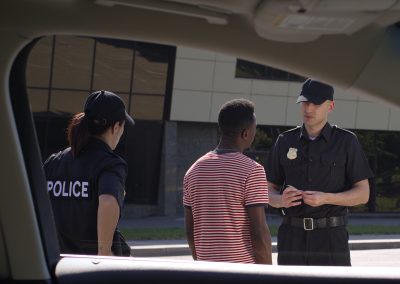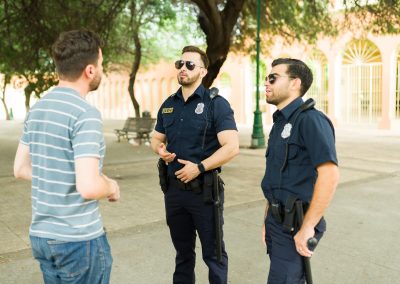Many of the readers of this article will have something in common: We drive. It’s that commonality that I am banking on to express my understanding of a huge topic, organizational leadership. If you own or operate a vehicle or a large piece of equipment with multiple systems, you should be able to relate.
I remember my first car. It was a 1978 Buick Skylark with a 3.8-liter V6 engine and an automatic transmission. It wasn’t anything fancier than a 17-year-old working a minimum-wage job at McDonald’s could afford. Minimum wage was at or around $3.25 per hour. I wasn’t a talented driver, but I understood the mechanics of driving and had a lot of experience riding a bicycle. As a result, I appreciated the upgrade that I was purchasing.
My Story
My story begins the same way as it did for many other kids my age. I went to driver’s education during the summer, studied the rules of the road so that I could pass the written test, and practiced driving with any licensed driver who would let me drive any vehicle to any location. I wasn’t picky. After all, practice is practice. Once I was confident enough to go take the driving test, I went and got my license.
I got my driver’s license a little later than many of my peers because, quite frankly, I didn’t need a car. I was a seasoned bicycle rider who could get anywhere I needed quickly and efficiently on a bike. However, as I matured, my social and economic footprint increased. As a result, so did the size of the geographical area that I needed to have access to. This inevitability is what eventually led me to purchase the car.
Having a license did not make me a good operator of the vehicle. Practice is what did that. Practice with a heavy dose of conscientiousness and responsibility. I knew the rules and did my best to follow them, despite my observation that most other people did not. I read the owner’s manual and developed a schedule for periodic maintenance. I kept the vehicle clean, inside and out. I conducted routine inspections both before and after the use of the vehicle. I didn’t abuse the vehicle by attempting to do things that were outside of its operational capabilities. I purchased the insurance required to operate the vehicle legally, and arranged for a place to park the vehicle that did not unduly inconvenience anyone while it was not being operated.
Those all seem like things that are pretty obvious to the rational car owner. However, I soon started learning that car ownership is more expensive and complicated than I thought. As a beginner, you don’t even know what you don’t know. As a result, reality is often happy to provide you with an unexpected slap in the face.
Despite all of my care and responsibility, the vehicle soon began to develop a mechanical issue. You see, I had no idea how the previous owner of the vehicle had treated it. Even though they had polished it up and made it pretty to sell, it had a serious underlying mechanical problem. As a novice driver, I wasn’t able to identify it prior to purchasing the vehicle. In addition, as a non-mechanic, it took some time to diagnose the problem. Once it was diagnosed, I knew that I could not fix it on my own.
The vehicle’s automatic transmission failed. As a result, I had to take it to a mechanic. Unfortunately, I was forced to trust an “expert” in the mechanical industry. Luckily, the problem was fixed. It was very expensive and required a complete rebuild of the transmission.
The rebuild worked. I would like to think that this was due to my skill in selecting the right mechanic for the job. But the truth is, there was really no way to tell for sure if he was the right person. He had experience and also had a good reputation in the area for being a good mechanic. He also offered a warranty on his work, but those were only good indicators. The only way to tell for sure was to drive the car after the work had been done. Luckily, for me, it worked flawlessly for the remainder of the time that I owned the vehicle.
Since that time, I have owned many other vehicles. Trucks, cars and motorcycles of many types and ages. I have gained much more experience as a driver. I got my commercial driver’s license when I turned 18 and drove nearly everything out there. I drove buses, tractor-trailers, tankers, cranes, heavy equipment, 9-axle trailers, doubles, triples, etc. You name it, I’ve probably driven it. As a result of over 30 years of driving experience with a multitude of platforms, conditions and roles, I am a subject-matter expert in the ways of driving. I have all kinds of qualifications and certificates and experience to back up that statement. Although I’m not an experienced mechanic, I can handle basic problems. More importantly, however, I can properly maintain my vehicles. I can also diagnose problems with decent accuracy, and make good decisions about when a problem is too large for me to handle alone.
Additionally, as an experienced driver I can readily identify and appreciate the skill levels of other drivers. I can and have taught others how to drive a myriad of vehicle types, including tactical vehicle driving and tactical motorcycle operations. I have competed in skills events and performed extremely well in them at times. I’m always looking for ways to improve my driving skills, and I’m a connoisseur of observing drivers who have developed a mastery of these skills. I’m extremely grateful for any chance I get at competing against or learning from these masters.
Here’s the thing: As a reader you might be wondering if I’ve lost my mind. Why I am telling you all of this? What does driving have to do with leadership?
I didn’t tell you all about my driving experience to brag. Many of you out there reading probably have your own expertise. If you try, you can likely relate that experience to leadership.
Leadership, Like Driving
A vehicle, much like an organization, is bigger than the operator. At worst, an improperly operated vehicle can menace, injure, kill, and cause civil and criminal liability. The victims of these events can be both the operator and other occupants of the vehicle. However, others outside of the vehicle are not immune to unskilled or poor choices made by the operator. Good decisions and good choices come with experience and training.
A vehicle, much like an organization, should have both a destination and a clearly planned path to get to that destination. It should have a timeframe as well. The operator is not always responsible for making all of those choices himself. However, once those choices are made, the operator has the ultimate responsibility for the process of getting there. Driving around while lost is expensive and dangerous. You can wind up in unfamiliar territory. You can also run out of gas and quite possibly the funding required to get back to your starting point, let alone your intended destination.
Think of the vehicle in terms of leadership. A good operator, will use every resource available to him. He will check the tires and fluid levels, and make sure that maintenance is not overdue. He will know both where he is going and how to get there. En route, he will operate the vehicle carefully, within its capabilities, and pay close attention to be sure all of the systems are operating properly. He will have checked the weather and traffic reports to be sure the path he has chosen is still the best one. He will know and abide by the rules and laws pertaining to the operation of the vehicle. Additionally, he will be courteous to both the operators of other vehicles and to anyone else he encounters during any trip he takes.
A good operator will be careful about who he lets in his vehicle. To begin with, they will want to be there. When possible, his passengers will be capable of being useful for navigation and morale. A good operator will inform passengers of any responsibilities they have well in advance. He won’t tolerate distractions that detract from the safety of the operation of the vehicle, but he will listen to and carefully consider any input that the passengers provide. A good operator knows that his passengers can offer different perspectives and can selectively focus on tasks that he cannot always manage himself while he is busy operating the vehicle. Additionally, passengers will have some motivation for the vehicle to operate efficiently and safely. Once they get inside, they’ll want to stay there until they get to where they’re going. Ultimately, the operator’s success will be shared by all the other occupants of the vehicle.
A good operator has a plan in the event of an emergency. He has insurance for accidental events. He has done his research so that he knows of reputable experts to call upon in the event of a situation that he or the other occupants of the vehicle are unable to handle. He has a method by which he can contact these experts, and, if delayed, he can shelter in place. He’s paid attention during past repairs so that he can use this knowledge to diagnose and repair the vehicle on his own when possible. A good operator knows when a problem is too big to handle by himself, and he knows his passengers well enough to know if they are a potential asset to fixing the problem.
Conclusion
I think that you get the picture. A good operator is much like a good leader. They minimize risks both through their experience and their care in operating the vehicle. Ultimately, this maximizes the potential usefulness of the vehicle by reducing operating costs and extending the life. It also greatly increases the likelihood of arriving safely at the pre-planned destination in a timely manner that makes being at that destination useful.










0 Comments